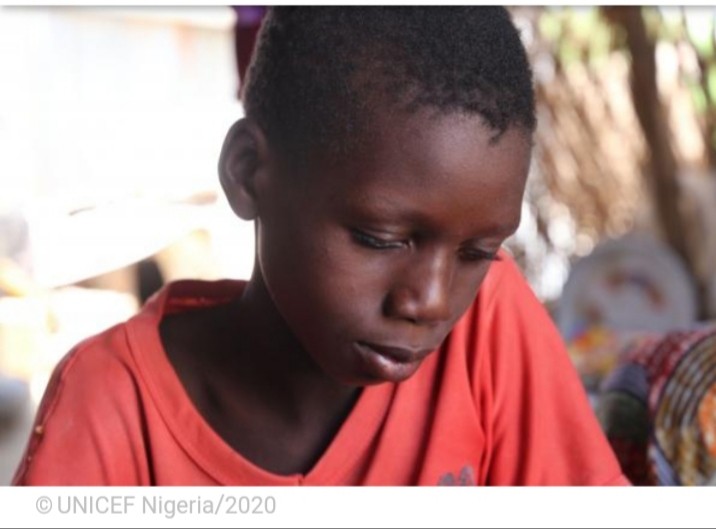13-Year-Old Abdulkarim Settles To A New Life After UNICEF Took Him, Others Out Of Almajiri Lifestyle
After years of walking the streets of Gombe begging for alms and food, his daily routine has suddenly changed thanks to the United Nations Children Fund which took him and 30 others off the streets.
Thirteen-year-old Abdulkarim who was supported to return to his family along with 30 other children by the Unicef said that he has spent half of his life as an Almajiri and is struggling to adjust to a life where begging is not part of his daily routine.
Advertisement
Abdulkarim had just been returned to Borno from Gombe State, where they had been living for several years as Almajirai.
He explained that a typical day for Almajiri starts at 4.30 a.m. with prayers and a Qur’anic recitation, and ends at 10 p.m. with another Qur’anic recitation. “In between, there were three slots in our schedule for begging. In a typical day, begging took up a full six hours.
“We would go to beg at 6 a.m. and return at 7 a.m. We would go out again at 11 a.m. and return for prayers at 2 p.m. Finally, between 6 p.m. and 8 p.m., we were back on the streets again, begging,” Abdulkarim said.
While parents may believe they are fulfilling their obligation to provide a religious and moral education to their children and that the learning is provided free of charge, Almajiri children are often forced by their teachers (Mallams) to beg in the streets to fund their education.
Advertisement
Miatta Abdulai, UNICEF’s Child Protection Specialist in Maiduguri, in a report noted that UNICEF has provided the children with safe psychosocial, recreational and life skills training as the first steps towards their reintegration into their communities, outside the Almajiri system.
“We made sure that health, nutrition, water, hygiene and sanitation services were available in the temporary shelters the government provided”.
“We put in place community monitoring mechanisms to ensure these children remain with their families and do not return to life as Almajirai,” said Abdulai.
Poverty and the desire to give their children religious education are believed to be the reasons why the Almajiri system thrives in the north.
Aisha Uma, Abdulkarim’s mother, cited security concerns, the context of the 10-year armed conflict in north-east Nigeria that has seen so many children displaced, abducted or killed.
Advertisement
“The conflict led us to send him to Gombe“ she said. “Prior to the security problems in the state, he was attending formal school and also Sangaya (Islamic school) in Mafa.”
“I don’t miss it at all. Life as an Almajiri was very tough,” said Abdulkarim. “I had to fend for myself, watch over myself, be my own security, and beg to support myself. I never enjoyed being an Almajiri because the system exposes one to so many dangers and it is very difficult.”
What happens to these children in their life outside the Almajiri system will determine their next move. Currently, they have big dreams.
“I want to read the Quran, go to formal school and become a businessman,” said Abdulsalim. Abdulkarim hopes to go back to school and farm in his spare time. “I see myself owning big businesses and providing mentorship support to younger ones in my community,” he said.



